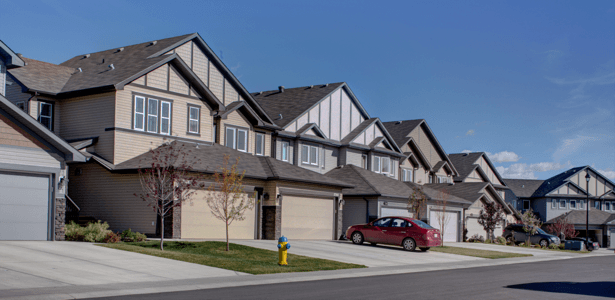When buying your next home you not only want to feel good living in it, but you also want it to be in a location that is right for you. For most people, this is determined by the kind of community they want to live in, and what they can afford to pay for it. Whether this means buying a condo in the heart of the city or a larger home in the suburbs, how do you determine which fit is best for you?
Finding Your Fit
When weighing the pros and cons of city versus suburban living, ask yourself these questions:
- How much can you afford to spend on your new home?
- Do you want a new home or a resale home?
- How much privacy do you require?
- How much noise and traffic can you handle in your new community?
- How much time are you willing to commute to work and other activities?
- Which amenities do you want to live close to, such as restaurants, museums, sport venues or a hospital?
City vs. Suburban – What’s the Difference?
City living is characterized by living closer to the downtown core. Residents have access to more amenities afforded to city living, such as restaurants, museums and sport venues.
Suburbs are typically residential communities located in the outlying areas of the city, or in a separate municipality close to a large city. These communities have access to a variety of shopping and other commercial services nearby. In the context of Edmonton for example, you live in a suburb if you are living in communities like Windermere or in municipalities like Sherwood Park.
 City Living
City Living
Pro: Access to More Amenities
Living in the city is characterized by living closer to the downtown core, meaning you’ll be closer to excellent amenities not always found in the suburbs. If you want to have quick access to trendy restaurants, boutique stores and more, finding a home in the city may well be for you.
Con: Homes are more expensive
Typically, the closer your home is to the downtown core, the more expensive it is to buy. This is because land costs are higher in these areas because of a scarcity of land to build new homes on, and because older homes were traditionally built on larger lots.
Pro: Lower Your Carbon Footprint
City living is also advantageous because you can lower your carbon footprint by living closer to everything you need. You likely have more opportunities to bike or walk to nearby amenities. That being said, with suburban areas becoming more self-sufficient, playing host to major retailers, grocery stores and restaurants, this is becoming a possibility in these areas too.
Con: More Noise, Less Parking
The more people to fit into a smaller area, the louder that area will be. Depending on where you live in the city, there could be significantly more noise due to traffic, emergency vehicles and everything else you encounter in the city. Also, the closer you live to the downtown core the harder it will be to park your vehicle, so anticipate extra costs to park it somewhere.
Suburban Living
Pro: Get More Bang for Your Buck
Typically, homebuyers will be able to purchase a home of equal or greater size at a cheaper price in the suburbs than they could in older communities closer to the downtown core. Building your next home is also a viable option in the suburbs, as new communities are under development and land costs are generally lower.
Con: Not Centrally Located
When you live in a suburban area, you'll rely more on your vehicle. In some parts of the city, you’re more centrally located to access amenities. Suburban residents will need to drive a bit more to access these.
Pro: More Family Oriented
Communities in the ‘burbs’ are particularly attractive to growing families making them more family oriented, where kids play street hockey, families get together for barbecues, and lifelong friendships are formed. You don’t just move into the community, you form a community.
Whether you move into the city or the suburbs is a matter of personal preference and perspective. As long as you know what your priorities are as it relates to your quality of life and how much you can spend on a home, you will be able to figure out rather quickly whether city life or suburban life is best for you.




